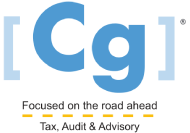
Most business owners would likely agree that strategic planning is important. Yet many companies rarely engage in active measures to gather and discuss strategy. Sometimes strategic planning is tacked on to a meeting about something else; other times it occurs only at the annual company retreat when employees may feel out of their element and perhaps not be fully focused.
Businesses should take strategic planning seriously. One way to do so is to hold meetings exclusively focused on discussing your company’s direction, establishing goals, and identifying the resources you’ll need to achieve them. To get the most from strategy sessions, follow some of the best practices you’d use for any formal business meeting.
Set an agenda
Every strategy session should have an agenda that’s relevant to strategic planning — and only strategic planning. Allocate an appropriate amount of time for each agenda item so that the meeting is neither too long nor too short.
Before the meeting, distribute a document showing who’ll be presenting on each agenda topic. The idea is to create a “no surprises” atmosphere in which attendees know what to expect and can thereby think about the topics in advance and bring their best ideas and feedback.
Lay down rules (if necessary)
Depending on your workplace culture, you may want to state some upfront rules. Address the importance of timely attendance and professional decorum — either in writing or by announcement as the meeting begins.
Every business may not need to do this, but meetings that become hostile or chaotic with personal conflicts or “side chatter” can undermine the purpose of strategic planning. Consider whether to identify conflict resolution methods that participants must agree to follow.
Choose a facilitator
A facilitator should oversee the meeting. He or she is responsible for:
- Starting and ending on time,
- Transitioning from one agenda item to the next,
- Enforcing the rules as necessary,
- Motivating participation from everyone, and
- Encouraging a positive, productive atmosphere.
If no one at your company feels up to the task, you could engage an outside consultant. Although you’ll need to vet the person carefully and weigh the financial cost, a skilled professional facilitator can make a big difference.
Keep minutes
Recording the minutes of a strategic planning meeting is essential. An official record will document what took place and which decisions (if any) were made. It will also serve as a log of potentially valuable ideas or future agenda items.
In addition, accurate meeting minutes will curtail miscommunications and limit memory lapses of what was said and by whom. If no record is kept, people’s memories may differ about the conclusions reached and disagreements could later arise about where the business is striving to head.
Gather ’round
By gathering your best and brightest to discuss strategic planning, you’ll put your company in a stronger competitive position. Contact our firm for help laying out some of the tax, accounting, and financial considerations you’ll need to talk about. © 2021

